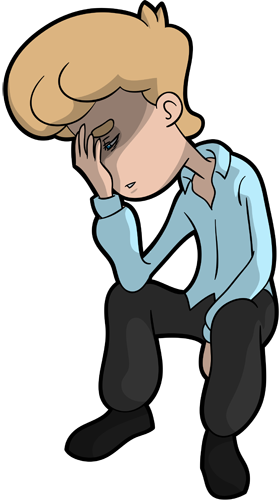 Mental Health | Engaging in just one hour of leisure-time physical activity per week can reduce your risk of future depression,
Mental Health | Engaging in just one hour of leisure-time physical activity per week can reduce your risk of future depression,
…according to a new study—which is the largest and most extensive of its kind to date. This paper, “Exercise and the Prevention of Depression: Results of the HUNT Cohort Study,” was published online in The American Journal of Psychiatry.
The findings of this study suggest that surprisingly small amounts of low-intensity physical activity (60 minutes of exercise per week, without becoming breathless or sweating) can protect against future depression, regardless of age or gender.
This international research team was led by the Black Dog Institute in Australia who conducted an in-depth analysis of the Health Study of Nord-Trøndelag County (HUNT study) which is one of the largest and most comprehensive population-based health surveys ever undertaken. HUNT involved 33,908 male and female Norwegian adults who had their levels of exercise and symptoms of depression and anxiety monitored over an 11-year period.
The latest findings that just 60 minutes of easy exercise per week can act as a prophylaxis against future depression adds to a growing body of evidence that small doses of physical activity can reap huge psychological and physical health benefits.
For example, an August 2017 Tufts-led study found that inactive older adults who added just 48 minutes of moderate physical activity per week (in the form of walking-based exercises) significantly lowered their risk for major mobility disability. Additionally, anything above 48 minutes of moderate exercise per week was a tipping point associated with improvements in overall physical functioning when compared to adults who were sedentary.
At the beginning of the HUNT study, all participants were asked to report their frequencyof weekly exercise and their degree of aerobic intensity without becoming breathless or sweating, becoming breathless and sweating, or exhausting themselves.
During the follow-up stage of the study, participants completed a self-report questionnaire (the Hospital Anxiety and Depression Scale) to indicate any emerging anxiety or depression over the years.
Notably, the researchers found that people did not have to become breathless, sweaty, or exhaust themselves to reap psychological benefits from exercise. In fact, the authors observed that low levels of aerobic intensity were just as effective as moderate-to-vigorous physical activity (MVPA) in terms of protecting against future depression.









 Mental Health | Engaging in just one hour of leisure-time physical activity per week can reduce your risk of future depression,
Mental Health | Engaging in just one hour of leisure-time physical activity per week can reduce your risk of future depression,